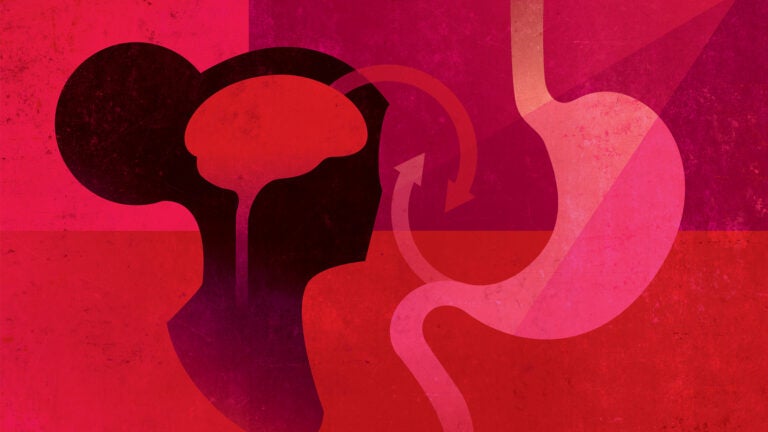
How does our gut impact our health? USC Dornsife scholars give answers
Research into the gut microbiome has taken off in recent decades. Increasing evidence shows that the billions of microorganisms contained in our digestive system have long-term impacts on our health and cognitive function.
Making sense of all the new information can get confusing and overwhelming.
Experts at the USC Dornsife College of Letters, Arts and Sciences dug into the latest science about our gut during a recent Dornsife Dialogue. Moderated by New York Times reporter and USC Dornsife psychology alumna Dana Smith, scholars explored what we should be eating, how the stomach and brain communicate, popular weight loss drugs, the efficacy of supplements, and yes, even fecal transplants.
What is the gut microbiome?
The gut microbiome is an ecosystem of trillions of microorganisms that inhabit our intestines. These microbes help us digest foods that we can’t digest very well, such as fiber. They also help maintain the integrity of the intestinal surfaces, preventing toxins and other harmful substances from entering the blood stream.
Within the last two decades, thanks to new technology and advances in the field, scientists have been able to learn more about these microbes and what they do, says Lindsey Schier, assistant professor of biological sciences. Emerging data suggests that they can influence lots of things about our physiology, metabolism and immunity.
What role does the gut microbiome play in inflammation?
Scientists are finding that some populations of gut bacteria are anti-inflammatory and others are pro-inflammatory, and that diet seems to shift this delicate balance.
One pro-inflammatory endotoxin, lipopolysaccharide (LPS), has been studied for many years. A diet high in sugar and saturated fatty acids can increase the amount of LPS in our gut, which then chews away at our gut barrier and enters our circulatory system, leading to an overall inflammatory state.
It’s a field with great potential for future breakthroughs. “The mechanisms in which dietary factors and metabolic factors are influencing inflammation through the microbiome are just starting to be understood,” says Scott Kanoski, professor of biological sciences.
What foods are good for our gut?
“We know more about what’s bad than what’s good,” says Kanoski. High-sugar diets can lead to an altered microbiome that may be connected to metabolic dysfunction, cognitive impairment and other adverse conditions. Kanoski’s research has found that high sugar consumption can be particularly damaging during important developmental stages, such as adolescence.
A high-fiber diet could be beneficial in terms of feeding our gut bacteria and allowing them to produce good things such as short-chain fatty acids, which the colon uses for energy and which also have anti-inflammatory effects and brain benefits.
Find a transcript of this audio here under the transcript tab.What’s the difference between a prebiotic and a probiotic, and do supplements help gut health?
Probiotics are foods that contain live bacteria, such as yogurt. “The idea is that when you consume them, the bacteria will take up residence in your gut and provide a benefit,” says Shier. Prebiotics, on the other hand, are things in our food (like fiber) that feed the good bacteria already in our gut.
In terms of supplements, there’s a lot of research being conducted right now, but the jury is still out on what works, says Shier: “We need to learn a lot more, like what types of bacteria are beneficial, how much of them would need to be consumed, and how they interact with other dietary or environmental factors.”
Importantly, none of the supplements currently on the market are regulated by the Food and Drug Administration. “There may be some research backing claims up on a supplement label, but it hasn’t been through rigorous years of testing and clinical trials,” adds Kanoski.
Why do GLP-1 receptor agonist drugs, such as Ozempic, help with weight loss?
Our body already produces glucagon-like peptide-1, or GLP-1, a hormone that helps slow the transit of nutrients in our intestines and makes us feel full. GLP-1 doesn’t last very long in the body naturally. Scientists have recently developed a modified version that lasts for a prolonged period, making patients who inject the hormone less hungry for longer time periods, resulting in weight loss.
GLP-1 also works in the brain, says Kanoski, potentially reducing those pleasurable pings we get from consuming certain foods such as carbohydrates. This may be why GLP-1 seems to hold promise for curbing addiction to other substances like alcohol, which engage with similar reward systems in the brain.